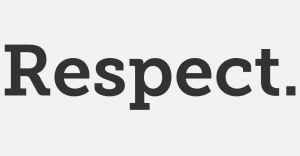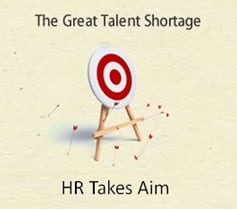In the June 3, 2014 Ask The Headhunter Newsletter, a manager tells how she finds great hires.
Last week we heard from Annie, a manager whose approach to interviewing and hiring reflects how she likes to be treated as a job applicant. She doesn’t rely on job boards. She treats applicants respectfully and always gets back to them. She explains interviewing procedures clearly in advance. She doesn’t waste applicants’ time. And she doesn’t demand their salary history.
 So far, so good — but does this work? Does it help her hire great people?
So far, so good — but does this work? Does it help her hire great people?
Annie and I have kept up an e-mail conversation, and she has generously shared the process and outcome of her hiring efforts. You can review the story to date — and we’ll pick up where we left off last week.
From Annie
I don’t ask for salary history
Hi, Nick! It’s exciting to see the story up and people engaging with it. Our top candidate just accepted our offer today, so I’m able (and delighted) to say that our search process has been a success.
We suspected (but didn’t confirm) that the candidate was probably under-paid at his current position. I had to campaign pretty vigorously to pay him what he’s worth instead of some calculation based on his current number. He was such a promising candidate that he likely wouldn’t take less, and I wouldn’t feel right offering it to him. After we had finished our internal budget negotiations and arrived at a range, I simply asked him what he was hoping to make. Luckily, the numbers worked out!
Nick Replies
Annie, good for you for making the case to pay the candidate what you think he’s worth. Asking what he wanted to make is the honest way to come to terms on salary. A good alternative would have been to quote your budget range for the job. Kudos to you for not falling back on a request for his salary history. Job applicants should keep their salary under wraps.
Someone on the blog (Eddie) asked this question:
It is good to hear that hiring managers are attending networking events. But how do I find these?
Can you share with us how you network to recruit?
From Annie
Where I network to find great job candidates
Your commenter Dave is spot-on: Meetup groups are the way to go. The position I was hiring for is a technical one (and I’m in a technical role myself), so most of my networking was at groups focused on programming languages, technology stacks, etc. These aren’t (on the surface) career/hiring events. These are places where people in the industry get together and discuss their craft. So, if you are deliberate about hiring, it’s the sweet spot: places to form relationships with people who already have good jobs in the area, who know their stuff, and who might want a job someday. [Don’t say, “I don’t know anybody!” -Nick]
Making friends at meetups
The tricky thing about relying on a network is, you have to start building it before you need it. I’ve been going to most of these groups for years. They give me the opportunity to make friends, pair-code with people, toss around project ideas, and share answers to problems. In other words, to demonstrate my interest and involvement in our field, and get enough face time that people can safely conclude I’m probably not a terrible, awful person to work with.
Really, I can’t stress enough how important this kind of interaction (again, on your advice) has been in my career. I’ve gotten jobs based on the recommendation of people I’ve pair-coded with at meetups. I’ve got job leads in my pocket because of it. And I found the young man that we eventually hired the same way: a personal recommendation from someone I trust, who knows both of us through meetup groups.
Diversity in recruiting
Following on the recent news of Google releasing their demographics data, I think this is also the perfect (and possibly only?) way to go about recruiting a diverse staff. I make sure to contribute in groups targeting women and other minorities in engineering, in part so that I can be sure to know diverse candidates in order to include them in my hiring process. You know, everybody says, “We need more women / African Americans / Latinos / etc. in computers,” but it seems like companies make next to no effort to go out and recruit them. Unfortunately, they won’t just fall into your lap. As with everything, it takes work.
Nick Replies
Annie: You’ve made an eloquent case for real networking. Your method of making friends to find great hires is the flip-side of making friends to get referred to great jobs. (I cover this in detail in How Can I Change Careers?, in the section titled “A Good Network Is a Circle of Friends.”)
Thanks for acknowledging that “networking” — as some people practice it — can be “icky.” By investing the time to demonstrate your genuine interest in talking shop, you help people judge that you’re a good person to talk with and get to know. This is the essence of making friends and getting introduced to jobs.
Thanks again for showing us how you actually recruit and hire using the ideas we discuss here every day. Some managers respect job applicants and go out of their way to make good hires intelligently and with care. My advice to job seekers: A manager like Annie doesn’t need many great applicants, and you don’t need more than just one good manager to hire you. Don’t lower your standards. Go where managers like Annie will find you.
Where do you find great managers? How do you network effectively to find great jobs? There is nothing easy or quick about investing time in your professional community to get ahead. If it were easy, everyone would be doing it. Since they’re not, it means you have less competition. Does this shake up your world?
: :














